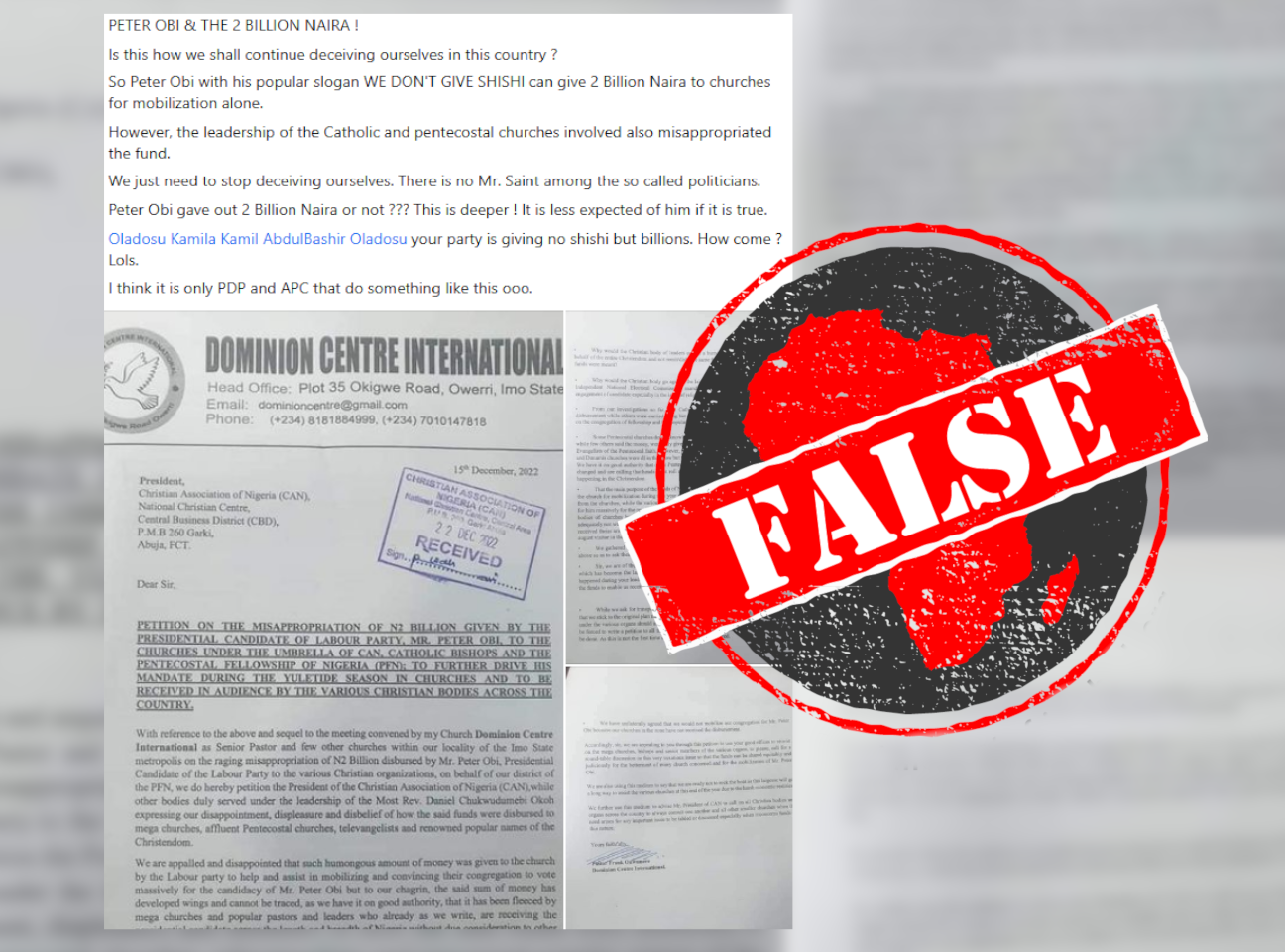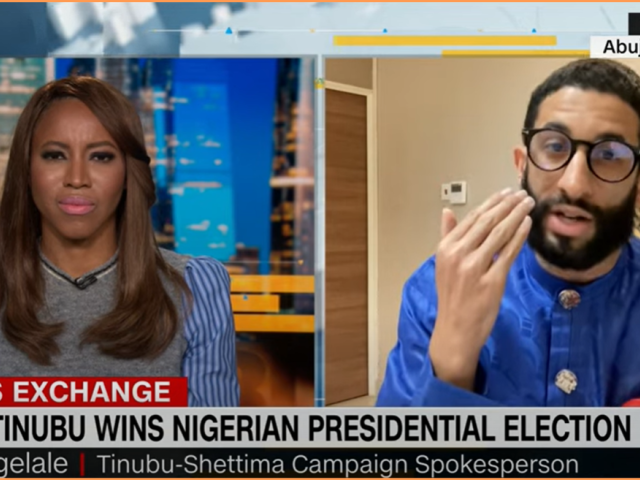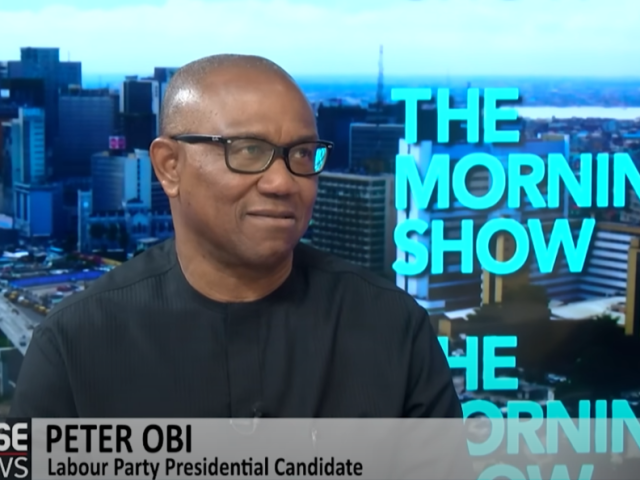IN SHORT: Peter Obi is the only Christian candidate among the four frontrunners in the race for the presidency of Nigeria, a country often riven by its Muslim-Christian divide. With days to go before the vote, a claim that Obi has bribed major churches is just more election season shenanigans.
A letter circulating online suggests that Peter Obi, the presidential candidate of Nigeria’s Labour Party, gave N2 billion (about US$4.3 million) to major churches in the country over Christmas – and that the money has since been “misappropriated”.
Nigerians are set to elect a new president on 25 February 2023.
The letter is seemingly from “Dominion Centre International” in Nigeria’s southeastern state of Imo. It’s signed by pastor Frank Onwumere.
The letter begins:
Petition on the misappropriation of N2 billion given by the presidential candidate of Labour Party, Mr Peter Obi, to the churches under the umbrella of CAN, Catholic bishops and the Pentecostal Fellowship of Nigeria (PFN); to further drive his mandate during the Yuletide season in churches and to be received in an audience by the various Christian bodies across the country.
CAN is the Christian Association of Nigeria, the largest body representing the interest of the country’s churches and Christians.
The claim that Obi has bribed Nigerian churches went viral on Twitter after it was posted by his political opponents. They include Festus Keyamo, the spokesperson for the governing All Progressives Congress presidential campaign council.
Keyamo tweeted the claim on 12 February. His tweet was viewed more than 800,000 times in less than 24 hours.
Others have used the claim to mock Obi and his supporters, whose slogan is “We nor dey give shishi.” That’s Nigerian Pidgin for “We don’t bribe.”
There are many versions of the claim on Facebook. You can see some here, here, here, here, here and here.
Obi is the only Christian among the four leading candidates in Nigeria’s 2023 presidential election. While campaigning he has visited many churches, where he has often been received with cheers. He has been endorsed by prominent Christian leaders.
But is there evidence he bribed Nigeria’s churches with N2 billion to further his election chances?

Church leaders dismiss claim
Africa Check has found no evidence that Dominion Centre International exists in Imo state or in any other part of the country.
And hours after the claim went viral, it was dismissed by Onwumere. He released a statement that he hadn’t signed the petition and has never accused Obi of bribing churches.
The statement reads:
I wish to use this medium to inform the public, my associates, friends and family, that I, Hon. Pastor Frank Onwumere, did not author the said petition and did not authorise anybody to do so on my behalf.
I am not a member of Dominion Centre International and have never had any relationship with the organisation. The author of the petition is not known to me. Please be assured that it is not in my character to malign any person or institution, let alone revered religious bodies.
Onwumere also released a video debunking the claim.
And CAN denied that it had received any money from Obi.
Archbishop Daniel Okoh, CAN president, said:
I use this medium to categorically state that the so-called letter of petition reportedly signed by one Pastor Frank Onwumere and addressed to my office is illogical and can best be described as a failed attempt to drag the apex Christian body into the politics of 2023.
To set the records straight, I am not aware of any N2bn given to Churches in Nigeria to mobilise votes for any 2023 presidential candidate and never received the said petition dated December 22, 2022.
Republish our content for free
For publishers: what to do if your post is rated false
A fact-checker has rated your Facebook or Instagram post as “false”, “altered”, “partly false” or “missing context”. This could have serious consequences. What do you do?
Click on our guide for the steps you should follow.
Publishers guideAfrica Check teams up with Facebook
Africa Check is a partner in Meta's third-party fact-checking programme to help stop the spread of false information on social media.
The content we rate as “false” will be downgraded on Facebook and Instagram. This means fewer people will see it.
You can also help identify false information on Facebook. This guide explains how.




Add new comment